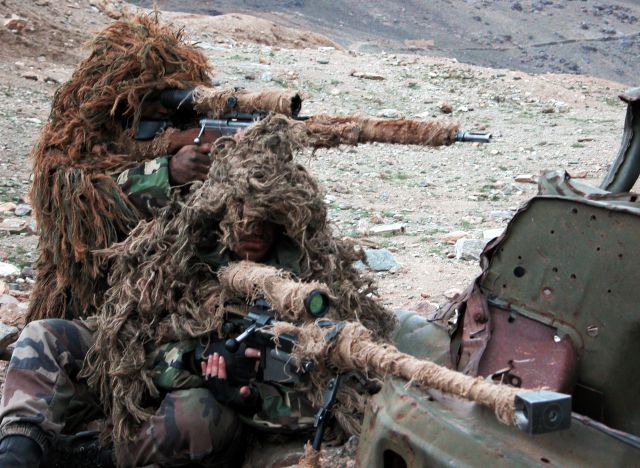
A 20-hour assault on the US embassy in Kabul by Taliban fighters on September 14 has exposed further weaknesses in the already-crumbling facade of the United States-led occupation of Afghanistan.
The Taliban launched a sustained rocket attack on what is supposedly the most secure area in the country, seriously embarrassing Western officials who continue to insist “progress” is being made.
The attack was yet another sign of the West's failure to achieve its imperial aims in the decade-long war. Perhaps the starkest sign is its ongoing attempts to negotiate a peace treaty with the Taliban.
The US approved a Taliban headquarters to be set up in Qatar to engage in further peace talks, The Australian said on September 13. The Taliban would be treated like a political party and would be free from harassment or arrest, although they would be forbidden to raise money.
“The initiative follows more than a year of informal stop-start talks between Western diplomats and a senior representative of the Taliban, Tayyab Agha, at the home of a former Taliban diplomat in Qatar,” the article said.
Dr Susanne Schmeidl, co-founder of an Afghanistan-based think tank called The Liaison Office, told ABC Radio's PM on September 13: “It's been one of the most violent years so far. The insurgency has clearly shown that they're able to replenish whatever gets killed or captured. They've shown that they're doing quite well with their intimidation strategy.
“So, I mean, it does show that you cannot win the war militarily. So you do need to find a political settlement, which is probably why they're doing that.”
Opposition to the war has deepened in Australia and an Essential Research poll found 64% of respondents want troops withdrawn. The August 29 poll found only 30% of people thought troop levels should be maintained or increased.
The results defied political divisions. Almost even numbers of Labor and Liberal supporters called for withdrawal.
Despite constant attempts from the government and military to paint a hopeful picture of Afghans taking over from the occupiers, facts on the ground suggest the opposite.
Australia's efforts in Oruzgan province to build a security force that is reliable and compliant with Western interests has flopped badly in recent years.
The Sydney Morning Herald said on September 13 that the number of Afghans joining the national army in Oruzgan had plummeted in the last three years. Only 80 people have joined since 2009, including only six in 2011.
In a similar failure, a Human Rights Watch (HRW) report accused the Afghan Local Police of brazen criminality including rape, extortion and murder.
The force was set up last year by the US military to integrate local villagers ― including many members of local militias ― into a compliant force in line with the occupiers' interests.
Former US commander in Afghanistan General David Petraeus said in March that the police force was "arguably the most critical element in our effort to help Afghanistan develop the capability to secure itself".
One tribal elder told HRW the police were “all the kind of people who are involved in many crimes previously, and most of the time they are on drugs and have other bad habits, like keeping young boys [for sex]”.

Australia's long-term alliance with brutal Oruzgan-based warlord Matiullah Khan is symptomatic of the West's duplicity about human rights and democracy.
A diplomatic cable from the US embassy in Kabul on April 12, 2006, described Khan's activities as head of the Afghan Highway Patrol (AHP) in Oruzgan. “His impulse is to deploy his men to support his tribe's interests and/or kill Taliban rather than having any strategic approach to highway security,” the cable said.
“Credible accounts indicate that Matiollah operates protection rackets, skims from the AHP's payroll, and is involved in the illegal narcotics trade.”
Despite his activities remaining generally unchanged, Khan was promoted to local police chief in August. He has also been implicated in extortion and the killing and torture of his personal rivals.
Four Corners revealed on September 5 that in 2008 Khan had fed false information to the Australian military that led them to assassinate his rival, the local police chief whose job Khan now holds.
Khan also runs a prison so notorious for torture that Australia has suspended sending captured fighters there, the SMH said on September 8.
He has also earned an estimated $45 million from occupation forces for providing “highway security” and construction projects.
Australian special forces are also deeply involved in secret ''capture-or-kill'' raids against suspected insurgents. They are in bombing raids using remotely piloted drones.
The SMH said on September 5: “The soldiers are entrusted with extraordinary legal powers to target and if necessary shoot or bomb someone considered to be 'on the battlefield' even if they are in a home or simply driving a car.”
The Australian military claimed it emphasised capturing enemies. But one soldier told the SMH: ''We're the good guys, they're the bad guys... The reality is this isn't worth any [Australian] life and if I think there is a clear moral case, then I ask myself, 'where is that sword?' ''
Four Corners said on September 5 that Australia's activities had driven locals to join the insurgency.
The West's occupation and support for warlords like Khan have led to Afghanistan being ranked the world's most dangerous country in which to be born a woman, a Thomson Reuters Foundation survey said on June 15.
The survey said Afghan women had almost zero economic rights and were under constant threat from the war, poor healthcare and misogynist cultural practices.
The brutality and war crimes that mark the occupation are not simply unfortunate by-products of the occupation. They are essential features of any military occupation imposed on another nation.
It is perfectly clear to more and more people that lives are being lost in a futile and unjust war. We must demand our government listen.